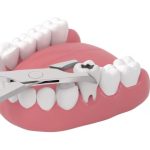Tooth extraction is sometimes needed for your oral health, but many people wonder, can losing a tooth change the way you talk? The answer is yes, especially if the missing tooth is in the front of your mouth.
When you speak, your tongue, lips, and teeth all work together. Removing a tooth can affect that balance.
In this blog, we’ll explain how speech can change after a tooth is pulled, what to expect, and how to get help if needed.
If you’re looking for help with tooth extractions in Brandon, understanding the effects on speech is important.
What Happens During Oral Surgery?
Tooth extraction is a simple form of oral surgery. It might be needed for many reasons: a badly decayed tooth, a wisdom tooth, or one that’s causing crowding.
If you need oral surgery near you, your dental team will make sure you’re comfortable during the procedure. They may numb your mouth or use sedation. After the tooth is removed, you’ll get care instructions to help you heal quickly.
To reduce the chances of speech issues, your dentist may recommend a temporary or permanent tooth replacement.
How Can a Tooth Extraction Affect Your Speech?
One of the biggest effects of tooth extraction is the way it might change how you speak. This usually happens when a front tooth is removed.
Here are some common changes people notice:
- Trouble pronouncing certain sounds like “s,” “th,” or “f”
- A slight lisp
- Whistling noises while talking
- Changes in bite that affect tongue position
The good news? These changes are often short-term, especially if the missing tooth is replaced quickly.
What’s the Link Between Tooth Removal and Speech?
There is a strong link between tooth removal and speech. Teeth help guide your tongue and shape sounds. When one or more teeth are missing, your tongue has to adjust.
This can make speech less clear or harder to control.
You may experience more speech issues if:
- A front tooth is removed
- Multiple teeth are taken out at once
- You have delays in getting a replacement tooth
Speech changes may be more noticeable when talking fast or in public. A dental appliance, like a bridge or denture, can help restore normal speech.
How Missing Teeth Can Impact the Way You Talk
The impact of missing teeth on speech depends on where the teeth are located. Front teeth are the most important for speaking clearly. Missing molars (back teeth) may not change speech as much, but they can affect chewing and comfort.
Here’s how missing teeth can affect your voice:
- You may slur or mix up words
- Some sounds may sound muffled
- You may feel self-conscious, which can lower your confidence
Replacing missing teeth quickly helps your speech return to normal. Your dentist may use crowns, bridges, dentures, or implants to fill the gap.
Reclaim Your Smile and Speech
Tooth loss doesn’t have to affect how you speak forever. At Orange Blossom Oral Surgery – Brandon, we provide expert tooth extractions and offer solutions to help restore your smile and speech quickly.
Whether it’s your first extraction or you need help after one, we’re here for you. Book your visit today and take the first step toward clear, confident speech again.
FAQs About Tooth Extraction and Speech
Can speech problems after extraction go away on their own?
Yes, in many cases, your speech improves as your mouth adjusts. However, if a front tooth is missing, you may need a replacement to restore speech.
How long does it take to speak normally after extraction?
Most people adjust within a few days to a couple of weeks. If speech problems last longer, contact your dentist.
Is it normal to have a lisp after a tooth extraction?
Yes, especially if the gap is in the front. A dental appliance can help correct it.
Can tooth replacement fix my speech issues?
Yes. Implants, bridges, or dentures can help you talk clearly again.
Do children face speech problems after tooth extraction?
Yes, especially if baby teeth are removed early. A dentist can guide parents on the best way to help kids adjust.







